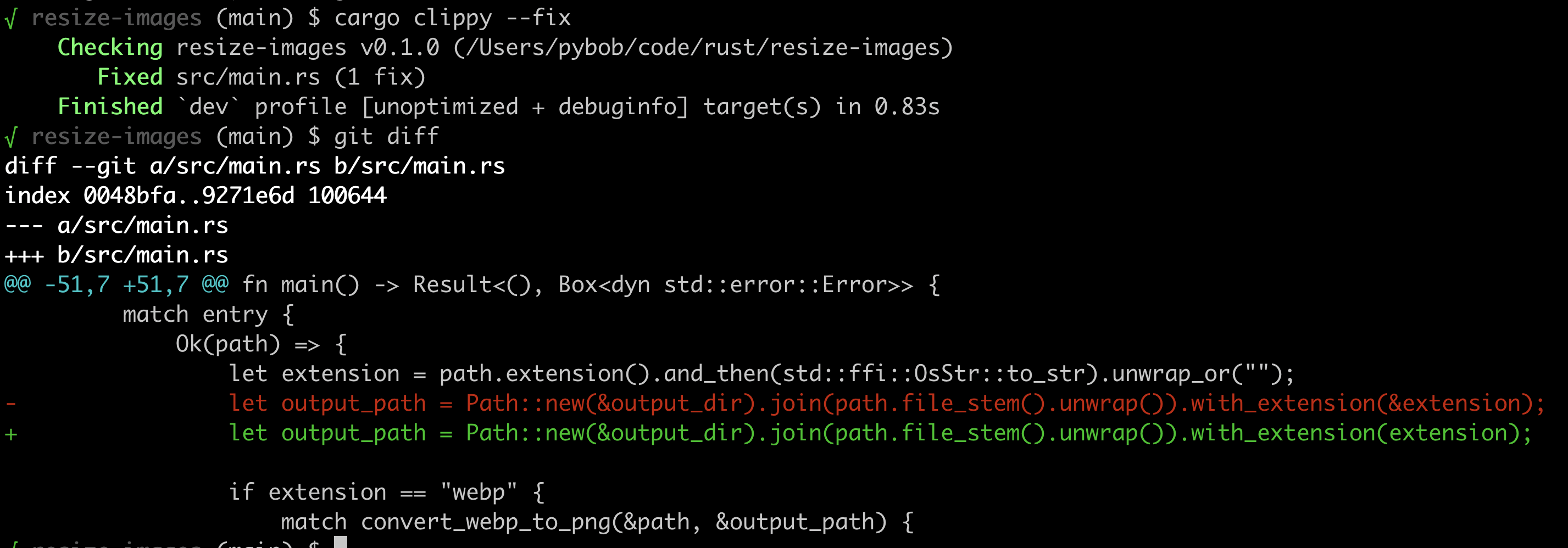I have been having a blast learning Rust, now 25 days in a row! 🎉
What has worked
1. Start building ASAP
Do a bit of initial study, but leave the theory soon and start building from day one (fake it before you make it).
Back it up with reading/study, but code every day! Converting Pybites tools, originally written in Python, to Rust kept it fun for me.
2. Use AI tools
Use AI for both coding and explaining concepts.
It's like having a dedicated research assistant and is much faster than googling or using Stack Overflow. Combined with the first strategy, you are knee-deep in code quickly, which boosts your learning.
3. Blog about your journey
Blogging forces you to understand concepts more thoroughly and share your insights. The first strategy ensures you always have content to talk about, and using AI tools, like ChatGPT for research and Co-pilot for writing, you can do this faster and better.
Additionally, blogging regularly forces you to put content out there, which also helps with the impostor syndrome that often comes with learning something new. 💡
4. Find an accountability partner
Find someone who is further along with the language to guide and encourage you.
A special shout-out to Jim Hodapp, who has been instrumental in clarifying doubts and supporting my journey.
Some wins / takeaways
1. Re-thinking things in Python
Rust’s emphasis on safety and correctness through its strict compiler checks and ownership system has highlighted the areas where Python’s flexibility could potentially lead to bugs and less maintainable code.
For example, with the Rust learning experience so far, I am even more eager to use type hints in Python or add stricter validation with Pydantic. These tools add a layer of safety and correctness to Python code, which learning Rust made me more aware of and appreciate more.
Similarly, Rust's default immutability makes you reflect on what that can mean for your Python code. It has made me more aware of the potential risks and benefits of mutable data structures, encouraging me to adopt immutability in Python where possible to enhance code safety and maintainability.
So a side effect of learning Rust is that I will become a better Python programmer. 🐍
2. Learning Rust is a journey - it's hard, but rewarding
Rust is a complex language, and the learning curve is steep. But the challenge is what makes it fun and rewarding. 🚀
I think the most important thing is to not take it all in at once. Break it down into small, manageable chunks, and build something at every step, even if it's small. 💡
Then gradually expose yourself to more advanced concepts, but be realistic with your timelines.
I have been mostly doing scripting so far and that's fine, at least I got quite some code written, and even shipped.
And there is something special about the compiler. 😍 It's strict and unforgiving, but it also becomes your best friend.
The feeling of accomplishment when you get the code to compile and run is awesome, specially knowing that that code is probably safe and performant. 🎉
3. Adding an amazing tool to my toolbox
Rust's performance capabilities are impressive. Even though I haven't delved deeply into this aspect yet, I did learn how to integrate Rust into Python.
So when I need to write performance-critical code, I can now try to use Rust and integrate it with Python.
4. Reaffirming the Pybites trifecta
The combination of "building - JIT learning - putting content out" works beyond Python. It turns out to be an effective template to learn any new language or technology. 😎
Conclusion
Learning Rust has been useful on many levels, but it's easy to get into tutorial paralysis when learning a new language.
So by building concrete tools, using AI, blogging, and finding an accountability partner, I have been able to keep the learning fun and productive. 🚀
I am only 25 days in, and I have a long way to go. But I am excited to see where this journey takes me over time ... 📈
